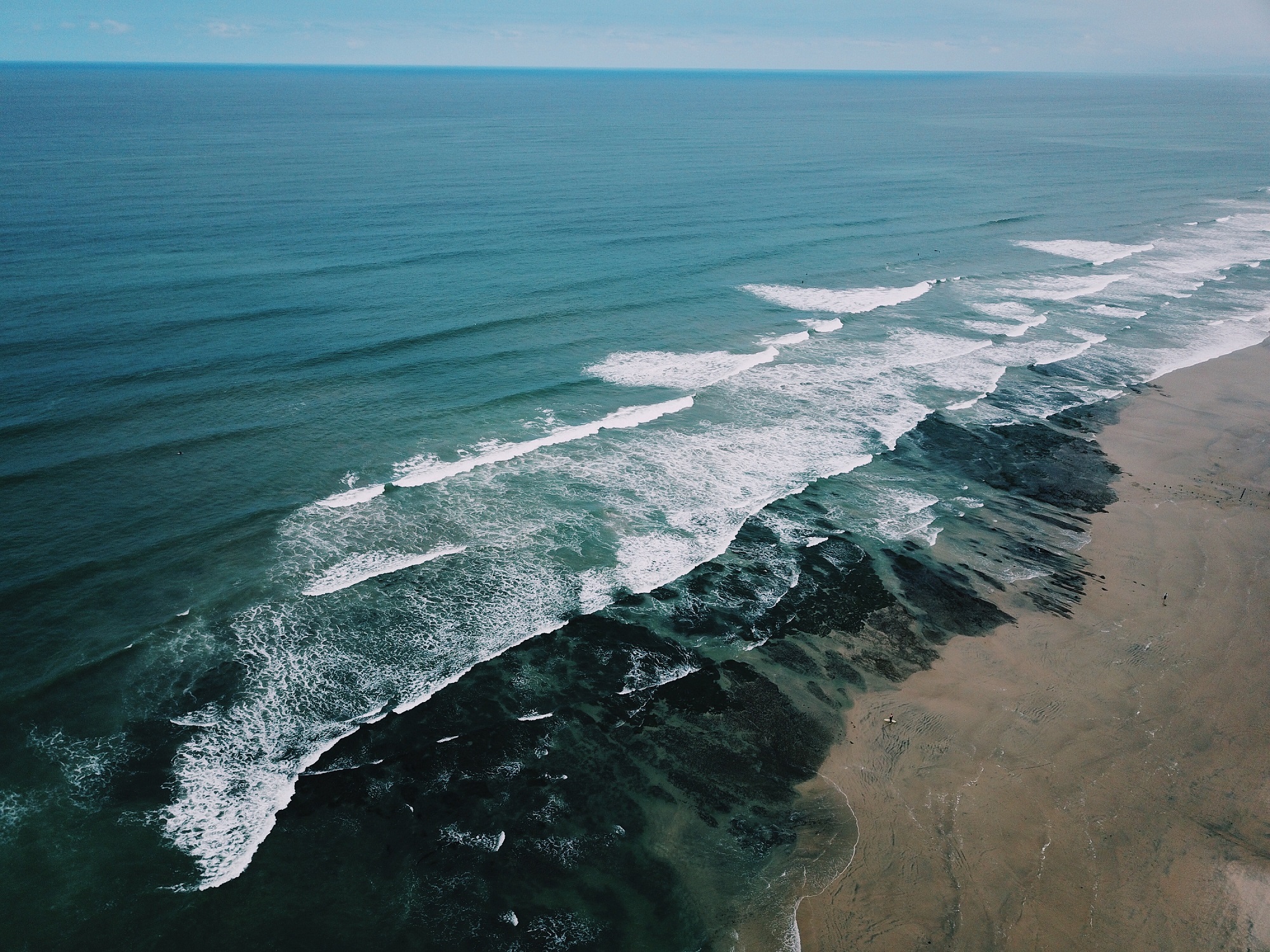
Seaweed Initiatives
In the realm of seaweed cultivation, our lab investigates techniques to improve seaweed restoration and farming. Our expertise lies in optimising growth conditions, maximising biomass yields, and developing innovative approaches to restoration and farming activities, and we collaborate with stakeholders to develop restoration strategies that can contribute to biodiversity and ecosystem resilience. With a constant focus on sustainability, our research drives advancements in scalable and efficient seaweed cultivation. Current and past projects are listed below.
If you are interested in student opportunities or collaborations, please reach out.
New cultivation handbook now available – for free!
We’re excited to announce the release of our Golden Kelp Cultivation Handbook, a comprehensive guide designed to support researchers, growers, and coastal communities in cultivating Ecklonia radiata, Australia’s iconic golden kelp. Packed with practical steps on growing golden kelp, innovative techniques, and insights from the team, this handbook is a must-have resource for anyone interested in seaweed farming, or kelp restoration. Download your copy today!
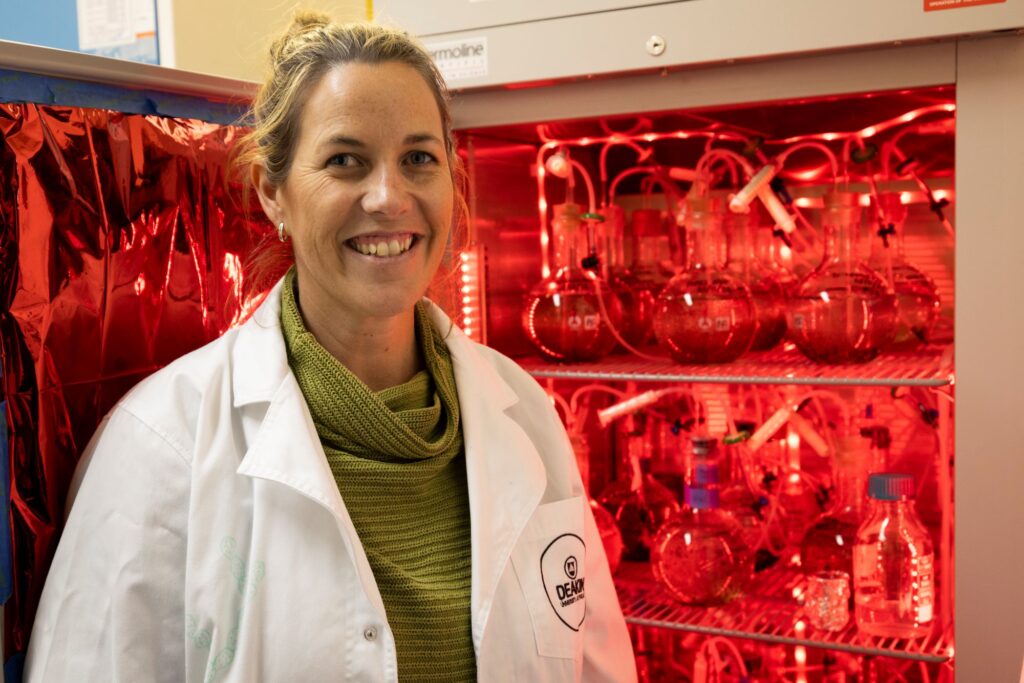
Kelp gametophytes (pictured here) will be taken from 9 populations in Port Phillip Bay to create seedbanks.
Photo credit: Stefan Andrews courtesy of Great Southern Reef Foundation
Kelping the Bay: future proofing Golden Kelp populations
Kelp forests are key to the health and function of marine ecosystems within Port Phillip Bay. However, several kelp species such as Ecklonia radiata (Golden Kelp) have suffered declines in recent decades due to habitat disturbances. Intervention initiatives are now required to restore depleted kelp and enhance the resilience of existing populations in the face of rapid climate change. This project (funded by the Port Phillip Bay Fund) will establish a long-term seedbank (gametophytes) that will preserve local genetic diversity and provide biological material for restoration. Mapping biological connections and genetic structure between remnant E. radiata populations to identify populations in need of intervention will be conducted.
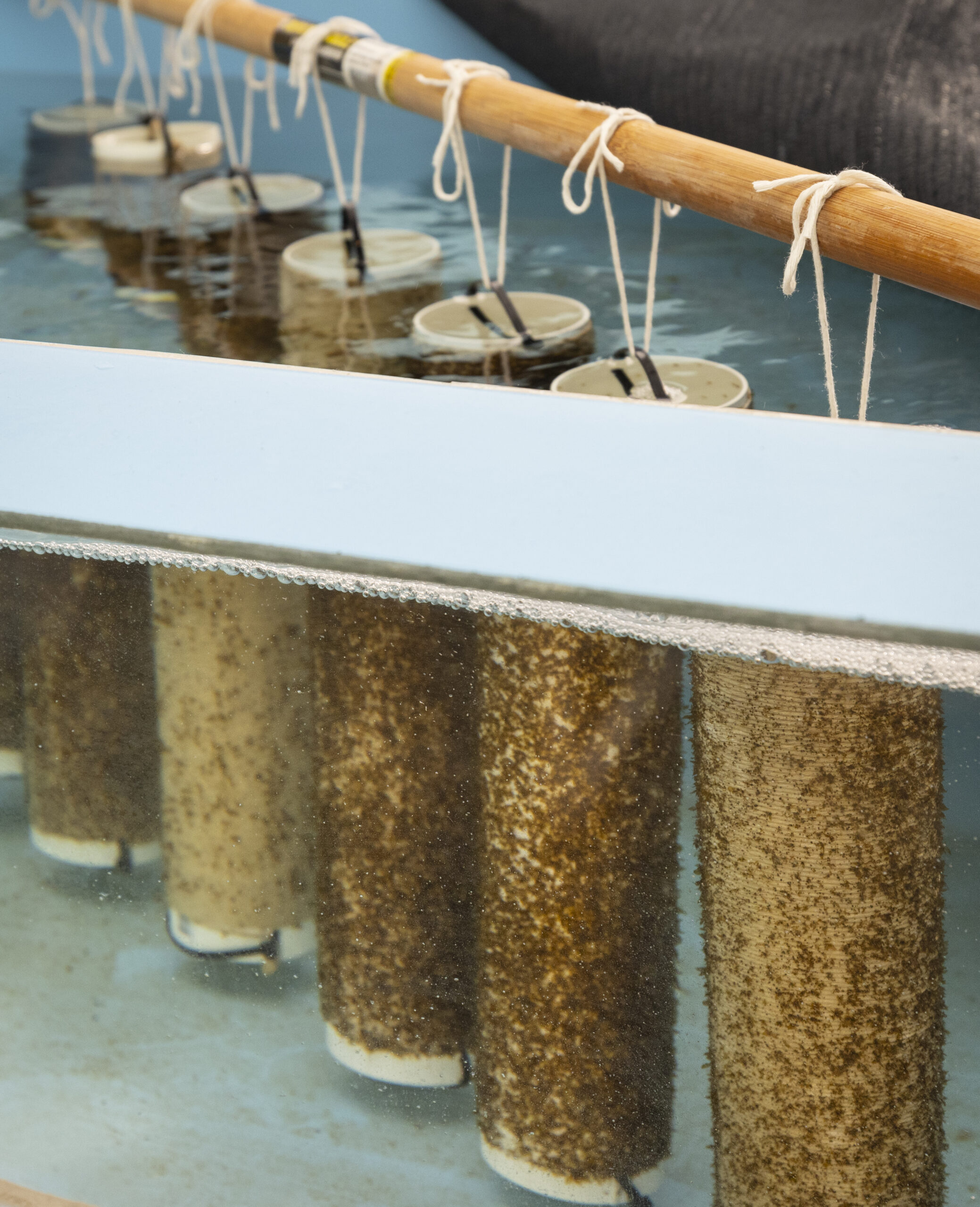
Kelp sporophytes growing on twine
Credit: Stefan Andrews courtesy of The Great Southern Reef Foundation
Golden Kelp restoration in Port Phillip Bay
We are working with University of Melbourne, Parks Victoria and The Nature Conservancy to undertake a State Government funded project to restore Golden Kelp in Port Phillip Bay, Victoria.
We are leading the kelp cultivation for the wider project where we have been trialling best methods for Golden Kelp cultivation and restoration in Port Phillip Bay. Methods we have trailed include juvenile kelp grown on twine and gravel.
We are outplanting kelp into targeted areas across two marine sanctuaries, Ricketts Point MS and Jawbone MS. Outputs from this small trial will guide future restoration efforts at a larger scale.
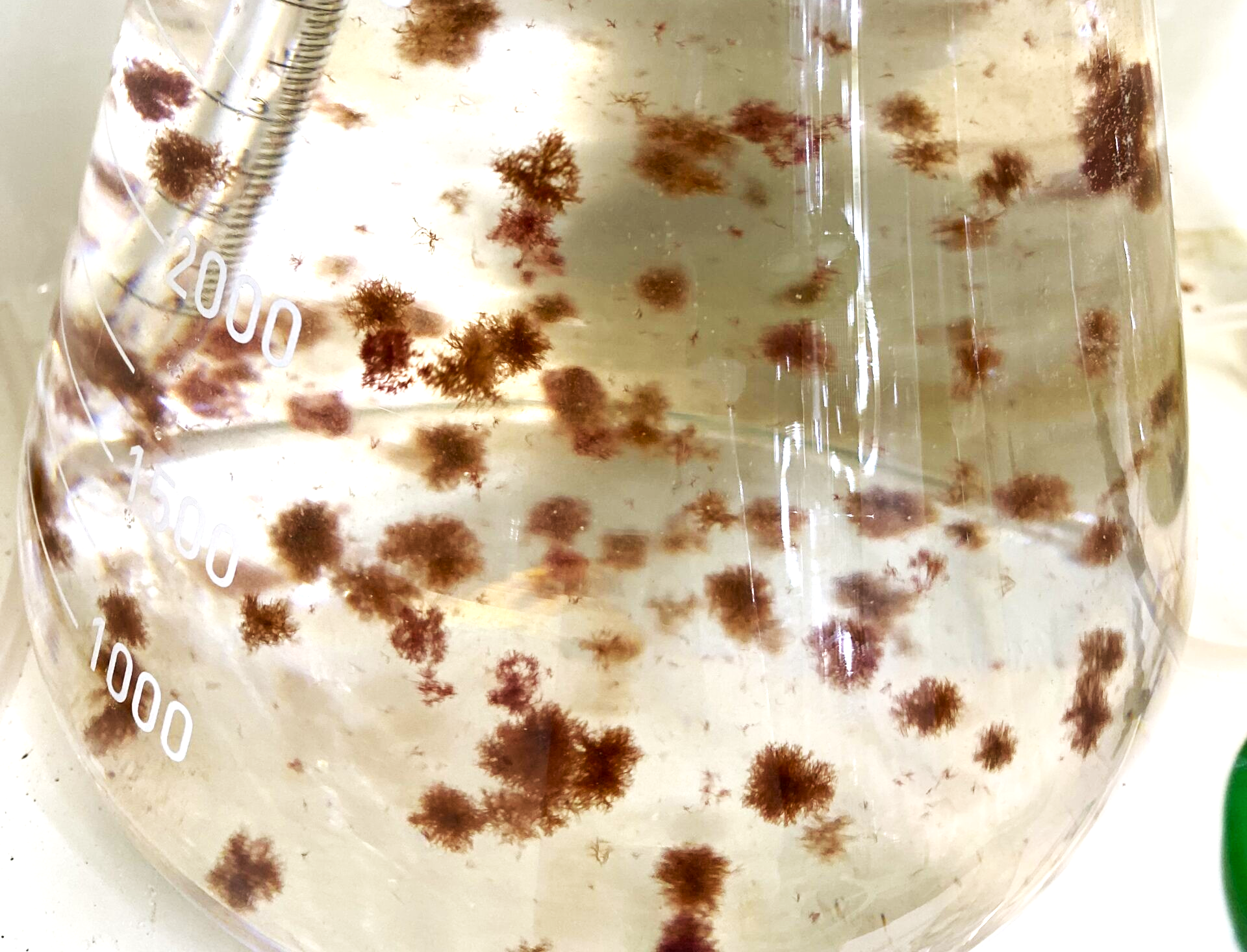
Tetrasporophyte stage of Asparagopsis armata culturing at Queenscliff Marine Science Centre.
Optimising culturing conditions of Asparagopsis armata
Immersion Group, a local seaweed organisation in Victoria, engaged Deakin to conduct a trial in relation to the environmental conditions influencing early growth milestones of the tetrasporophyte stage of the methane-reducing red seaweed, A. armata. We tested the effect of varying nutrient and light intensity conditions on both germination and early tetrasporophyte growth over a 13-day trial.
This trial contributes to the understanding of A. armata’s onshore cultivation potential and highlights the value of establishing hatcheries in Australia for commercial applications.
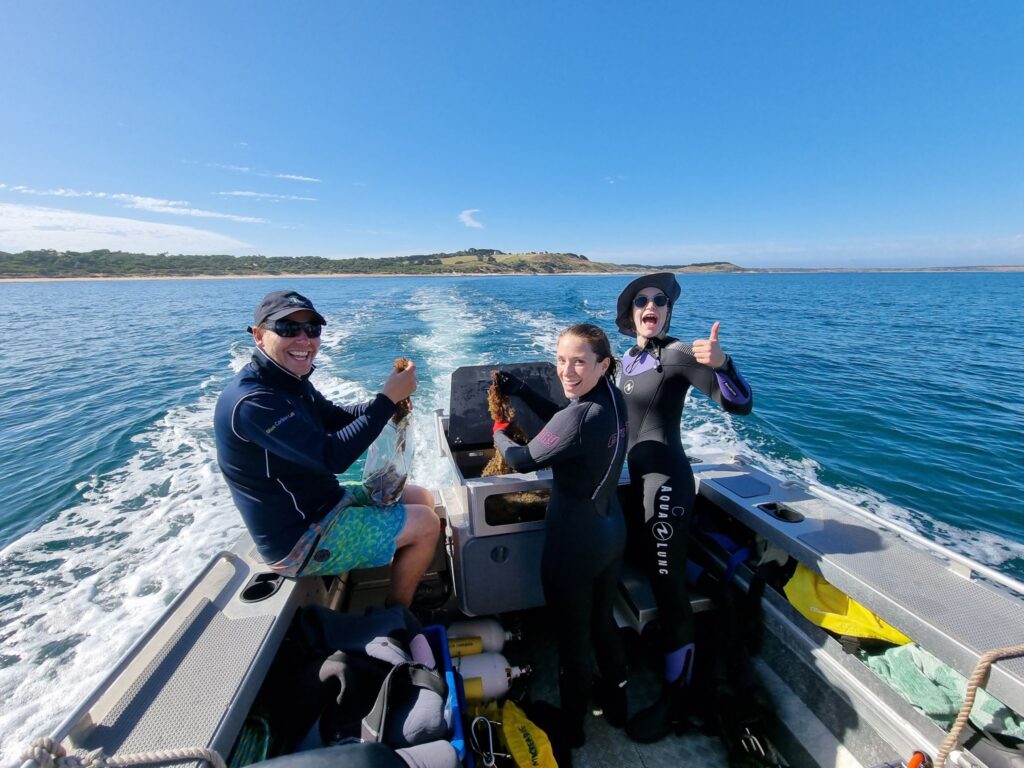
Developing a new Seaweed Aquaculture Industry in Gippsland
Food and Fibre Gippsland together with Latrobe Valley Authority engaged Deakin University (work led by Dr Paul Carnell from the Blue Carbon Lab) to conduct a seaweed feasibility survey to help inform the viability assessment and potential development of a commercial seaweed farming industry in Gippsland.